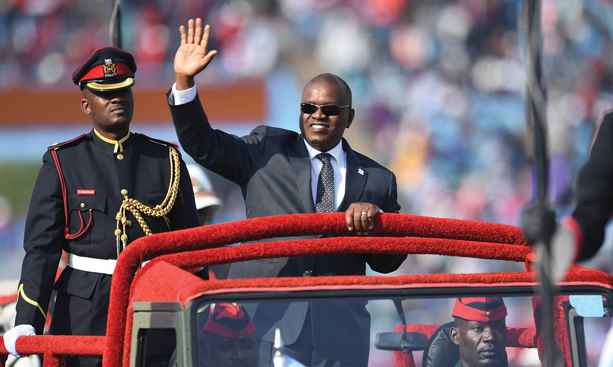Govt considers building new one
Cabinet is considering advice from the Directorate of Intelligence Services (DIS) that the location of the State House and its deteriorating condition compromise the security of the first citizen, President Mokgweetsi Masisi.
Since he became Head of State, Masisi has not occupied the State House, and continues to reside at State House II which is normally allocated to the vice president and his family. Masisi only uses State House for official functions like state banquets.
The DIS has recommended the relocation of State House after their earlier advice that residences adjacent to it be relocated was deemed a very expensive exercise and therefore unaffordable.
Addressing a press briefing early this year, DIS Director General Peter Magosi revealed that they had recommended the relocation of private properties around State House because the security situation of the country has changed from the time when they were allocated.
“We have proposed that those properties sharing the boundary with the State House be relocated because they really compromise the security of the President,” said Magosi.
Highly placed sources at the Government Enclave have intimated that the issue was recently brought before Cabinet ministers who were not comfortable with the idea of purchasing neighbouring private properties around the State House because it would cost government hundreds of millions of pula.
“Instead of relocating the private properties around the State House it was recommended that instead a new State House be built as the old one is also dilapidated and too expensive to renovate,” a source revealed.
Another concern was that government has spent millions of money to renovate the State House and nothing tangible can be shown hence the need to build a new one. The new State House though still at conception level is expected to be state of the art facility that is spacious enough and designed to accommodate state functions.
“The old State House does not have a conference facility large enough to host state banquet; thus forcing government to incur huge costs when hosting these functions at private venues,” revealed a source at the Government Enclave.
It is not yet clear if government has identified a piece of land where it will be built but it is expected to be on the outskirts of Gaborone. Government spokesperson Andrew Sesinyi referred enquiries on the matter to Magosi who could not be reached at the time of going to print.
Just before he retired from presidency in 2008, President Festus Mogae moved out of the State House to allow for its renovations ahead of the ascendency to Presidency of the then Vice President Ian Khama.
Office of the President used over P10 million in refurbishments and additional P13 million was spent on the conversion of the old Serious Crime Squad offices to provide accommodation for the BDF sentries at the State House. The building would also have a commander’s office, armoury, radio room, kitchen, dining room and gym.
Colonial relic
The construction of State House I and II started long before the 1966 Independence, around mid-1964. State House I was Peter Fawcus’ – the Resident Commissioner – home while the adjacent building was reserved for the deputy Resident Commissioner.
After independence in 1966, which Fawcus was credited with preparing ground for, the new President of Botswana Sir Seretse Khama moved into State House I while the Vice President took residence at State House II.
According to Government Portal, the Specific Functions of the State House include it being an extension of the Presidents’ Private Offices, Management and coordination of the Presidents’ domestic diaries, Coordination of the Diplomatic and Protocol services relating to credentials for H.E., Drafting agenda or programme for state occasions hosted at the State House, Providing public relations support services at the State House, Performing administrative functions i.e. human resource management, financial management, Providing security, protocol and ceremonial services at the State House and procurement and inventory control, transport management, property management etc.
Other functions are receiving State House visitors and taking care of their well-being, providing gardening, landscaping and grounds maintenance and Providing household, catering and laundry services as well as general household up-keep.
